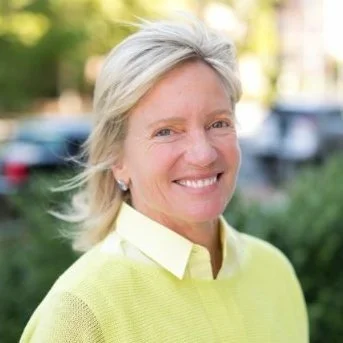Embattled to Empowered
What I Learned When I Finally Reached Out for Help
Colorado spring afternoon in the mountains
“Just One Condition…”
It’s a day I won’t ever forget. A sunny Colorado spring afternoon.
I was sitting on Elizabeth’s deck—the scent of ponderosa pine in the air, a hint of chill, and bright blue skies overhead—when she looked me square in the eyes and said,
“I’ll work with you on one condition: you take full responsibility for the situation you’re in.”
Her words struck a chord with me. And strangely, they brought a sense of hope.
The Breaking Point
For context, it had been a rough stretch for me— years in the making. About seven years into Open Sky, things were, by most accounts, good. We had built a strong reputation in our field and were doing reasonably well as a business.
As founding partners, we each wore many hats, often inventing new ones as the company evolved. My early days were in field and operations. A couple of years in, I shifted into business development, marketing, and eventually admissions—the role I was in during this chapter.
As partners, we didn’t always see eye to eye. Sometimes I disagreed with decisions but avoided confrontation. I buried myself in work, stayed loyal to the mission, and prided myself on perseverance. I was, in a sense, a “good soldier.” But under the surface, frustration and resentment were quietly growing.
When new hires joined—skilled, experienced people we had intentionally recruited—it was tough to take a back seat. It was humbling, even disorienting at times. I kept working hard, but I wasn’t engaged in the way I was at the outset or as confident in my place in the organization.
And then one day, I made what turned out to be a defining mistake.
A Mistake That Changed Everything
It was late on a Friday afternoon in December—dark outside, the office mostly empty. My boss stopped by unexpectedly. He seemed concerned, maybe anxious about how things were going.
After some brief small talk, he asked how admissions was going. I told him it was slow—typical for that time of year when families rarely want to send their child away during the holidays. He pressed a little: “So, what are you doing about it?”
Without thinking, I replied, “That’s not my job.”
The words hung in the air—heavy, echoing. I knew instantly I’d crossed a line.
At the time, I justified it. We had new marketing and outreach hires focused on getting new business; surely they were responsible for generating clients. But that moment revealed something deeper: years of passivity, of playing small, of seeing myself as a victim rather than an agent of change.
It was a mistake years in the making.
Taking Responsibility
In the months that followed, things were tense. My future at Open Sky felt uncertain. Questions about my commitment and loyalty surfaced. I was on thin ice.
That’s when I turned to Elizabeth. I unloaded everything—my frustrations, my sense of betrayal, my self-justifications. She listened, and then came her ultimatum:
“I’ll work with you on one condition—you take full responsibility for the situation you’re in.”
It hit hard
—but it also sparked something powerful.
For the first time in a long time, I felt possibility.
I remember saying, “I like that. Yes. And if I got myself into this situation, so I can get myself out of it.”
That was the moment things began to shift.
Elizabeth, my leadership coach for 10 years
The Work of Transformation
What followed was painstaking. I had to take stock of my missteps, recommit to the organization and my partners, and—most importantly—change my behavior.
Elizabeth guided me through it all. Sometimes we met at a coffee shop; other times I called her in a panic. She seemed to have an almost otherworldly grasp of our team dynamics and my place in it. She helped me see patterns I hadn’t seen before and offered practical, sometimes uncomfortable ways forward.
I learned to obsessively close the loop—to follow up, to communicate, to rebuild trust.
I learned to step toward tension, not away from it.
I learned to recognize others' anxiety and fear, validate it, and help them move forward with confidence.
I learned to take initiative again—to show, not just tell, my commitment.
Slowly, it worked. I became less anxious, more grounded, more effective. I was being trusted again. And perhaps most importantly, I trusted myself again.
Frostbite Crisis
A couple of years later, that progress was tested in the most painful way imaginable.
During the holiday break, I received a call from my boss. His tone told me something serious had happened. We had six students suffer frostbite in the field, two severe enough to require air transport to Denver. It was every leader’s nightmare—a near worst-case scenario come to life.
The days and weeks that followed were filled with heartbreak and scrutiny. I flew to Denver to support one of the boys, to help his family, and to serve as a bridge between them and our team. It was one of the hardest seasons of our professional lives.
When the dust settled, we worked relentlessly to understand what went wrong and to ensure it would never happen again. But even well-intentioned efforts to find answers can strain a culture. Accountability turned into blame. Teams became siloed. Trust eroded.
The months that ensued were a tough and dark period for our organization.
…and then Renewal
Eventually, we restructured, dissolving and later reinstating a key leadership role—the Program Director position. Initially, I was on the search committee. When few suitable candidates emerged, I was asked to step in temporarily. To my surprise, I found myself re-energized—back close to the field work where it all began.
I told my partners I wanted the job permanently. Their response was immediate and affirming. It was clear they believed in me again. And, perhaps most importantly, I believed in myself too.
Coaching didn’t just change how I saw myself—it changed how I could lead the organization. I became clear about my leadership values and developed a vision that could bring people together.
With newfound confidence and influence, I helped shift us away from fear and blame toward shared ownership, learning, and collaboration. Mistakes became opportunities to grow rather than occasions to assign fault, and trust slowly began to replace fear and anxiety. For the first time in years, I wasn’t just surviving as a leader—I was helping the organization rise, and guiding our people to thrive alongside me.
The Power of Coaching
Looking back, that transformation didn’t happen by accident. It happened because I asked for help—and because I had a coach who challenged me to take full responsibility.
Elizabeth’s influence didn’t just change me—it benefited the entire organization. Her coaching made me a better leader, teammate, and partner.
And it taught me something I now share with the leaders I coach: You can’t lead alone.
We often wait until we’re in crisis to seek support. We push through exhaustion, isolation, and doubt, hoping things will just get better. But they rarely do.
When I reflect on the most meaningful accomplishments of my life, there’s always been someone beside me—a mentor, a teacher, a therapist, a coach—helping me become who I’m capable of being.
Compelling Evidence for Leadership Coaching
Leadership coaching isn’t just a personal success story; it’s backed by solid research.
A 2023 Frontiers in Psychology meta-analysis found that coaching produces significant, reliable improvements in leaders’ performance, goal attainment, well-being, and confidence—with moderate to large effect sizes across studies. Similarly, a meta-analysis of randomized controlled trials confirmed that coaching consistently enhances leadership behaviors and organizational outcomes.
In short, coaching works. It delivers measurable benefits for both leaders and the organizations they serve.
An Invitation
If you’ve ever felt stuck, demoralized, or simply ready to grow beyond where you are—don’t wait for rock bottom.
Reach out. Let’s explore what’s possible for your leadership.
Drawing on more than 25 years of leadership experience, I bring a thoughtful, caring, and insightful approach to coaching. Utilizing the most empirically validated leadership operating framework available—The Leadership Challenge and the LPI360® tool—I help leaders harness their capacity, rediscover their passion, and strengthen the culture around them.
Leadership can be lonely, but it doesn’t have to be. With the right support, it can be transformative.
Danny is a Certified
Leadership Coach
Danny is certified to use the Leadership Practices Inventory (LPI) — one of the most trusted 360-degree leadership assessments available today. Grounded in The Leadership Challenge, a best-selling leadership framework now in its 7th edition, the LPI measures 30 behaviors across five practices of exemplary leadership.





